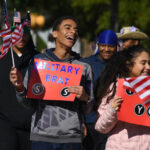In Bangladesh, Martyred Intellectuals Day is observed on 14 December. The day honors over 1,000 intellectuals killed by Pakistan forces during the Bangladesh Liberation War in 1971. Just when victory was on the horizon, Pakistan abducted and brutally killed some of the best minds in Bangladesh (formerly East Pakistan). The aim was to annihilate the entire intellectual class of Bangladesh. Martyred Intellectuals Day ensures that the world never forgets the efforts and bravery of these exceptional individuals.
History of Martyred Intellectuals Day
The story behind one of the darkest days in Bangladesh’s history begins soon after India’s Independence from Britain in 1947. The British left behind a broken nation, both literally and figuratively. It was a time of great sorrow as the subcontinent split into two nations: India and Pakistan. The reasons for the division were purely religious. All Muslim-majority regions became Pakistan.
As India started building the foundations for a secular republic, Pakistan faced an impossible dilemma. Over 1,000 miles across lay East Pakistan (present-day Bangladesh). Dominated by Bengalis, East Pakistan was culturally, socially, and linguistically distinct in every conceivable way. Being Muslim seemed their only common thread, albeit extremely thin.
Tensions rose between the two territories as West Pakistan sought absolute control. West Pakistan refused to accept “Bengali” as a state language. It was the beginning of sustained insults and slights towards Bengalis and their culture. The economic disparity between the two regions also became difficult to ignore.
Things came to a head in March 1971 during elections in East Pakistan. The Awami League Party based in East Pakistan won the elections. Yet, the Pakistan People’s Party (West Pakistan based) refused to hand over the reins. Violence ensued. The West Pakistan army went on the offensive. And thus, began the Bangladesh Liberation War, sparked by a rousing call for Bengali self-determination.
Sensing defeat, the West Pakistan forces dealt a final, crippling blow to East Pakistan. On December 14, 1971, the army abducted scores of East Pakistani intellectuals from their homes. They tortured and killed over 1000 people — namely, teachers, doctors, engineers, journalists, lawyers, and scientists. In a cruel twist, Pakistani forces surrendered just two days later, and an independent Bangladesh formed. Martyred Intellectuals Day honors the memory of these outstanding individuals who lost their lives for the idea of Bangladesh.
Martyred Intellectuals Day timeline
The Pakistan army launches Operation Starlight — a systematic genocide of 7,000 innocent Bengali civilians.
The struggle for Bangladesh intensifies and a curfew is imposed in Dhaka.
West Pakistan finalizes plans to cripple East Pakistan by targeting its intellectuals.
West Pakistan armies brutally capture, torture, and kill at least 1,000 East Pakistan intellectuals.
Martyred Intellectuals Day FAQs
Who are called Martyred Intellectuals?
Martyred Intellectuals refers to the brightest minds of Bangladesh (formerly East Pakistan) killed by Pakistan forces during the Liberation War in 1971. They comprised philosophers, teachers, litterateurs, artists, journalists, scientists, architects, engineers, lawyers, social workers, activists, musicians, and actors.
How many intellectuals died in 1971?
Unofficial estimates record that at least 1,111 intellectuals lost their lives on 25 March and 14 December 1971. Most of the executions took place on these two days.
Where is the Martyred Intellectuals memorial?
Martyred Intellectuals Memorial lies in Dhaka’s Rayerbazar. The memorial stands at the site of the brick kilns where people discovered the bodies of the intellectuals.
How to Observe Martyred Intellectuals Day
Visit the Martyred Intellectuals Memorial
When in Dhaka, visit the Martyred Intellectuals Memorial to pay your respects to some of Bangladesh’s greatest thinkers and scholars. The Memorial is located at Rayerbazar, Mohammadpur Thana, in Dhaka.
Watch a documentary or film
Look up films about the Bangladesh Liberation War. We recommend “Amar Bondhu Rashed” and “1971” — both incredibly gripping and insightful.
Read, and read some more
Amplify their stories. Find journals, papers, online magazines, and news portals that document the lives and achievements of Bangladesh’s martyred intellectuals. Share what you have learned with those around you.
5 Facts About Altaf Mahmud That Will Blow Your Mind
The revolutionary bard
Altaf Mahmud was a musician and martyred intellectual who composed “Amar Bhaier Rokte Rangano” — the famous song of the Bangladesh Liberation War.
The traveling revolutionary bard
During the 1950s, Mahmud traveled from place to place singing Bengali songs to inspire public opinion on the Language Movement.
A man of many talents
Apart from being a master musician, Mahmud also worked in 19 different films, including the renowned “Jibon Theke Neya.”
True to the cause, against all odds
Mahmud created a secret hideout inside his house for activists and freedom fighters.
Recognized and awarded posthumously
Altaf Mahmud, who passed away in 1971, was awarded the prestigious “Ekushey Padak” in 1977.
Why Martyred Intellectuals Day is important
Wars are fought in different ways
We have days dedicated to soldiers and veterans. A day for martyred intellectuals is just as vital. Their writings, songs, and thoughts gave wings and flight to the Liberation War.
Respect for grieving families
Observing Martyred Intellectuals Day respects the families who still cope with personal and historical trauma. Although nothing can alleviate such enormous loss, commemorating the day offers a semblance of closure.
Never forget
Martyred Intellectuals Day is a reminder of history. In keeping records of martyred intellectuals, the day serves as a crucial historical source for future generations.
Martyred Intellectuals Day dates
| Year | Date | Day |
|---|---|---|
| 2025 | December 14 | Sunday |
| 2026 | December 14 | Monday |
| 2027 | December 14 | Tuesday |
| 2028 | December 14 | Thursday |
| 2029 | December 14 | Friday |













